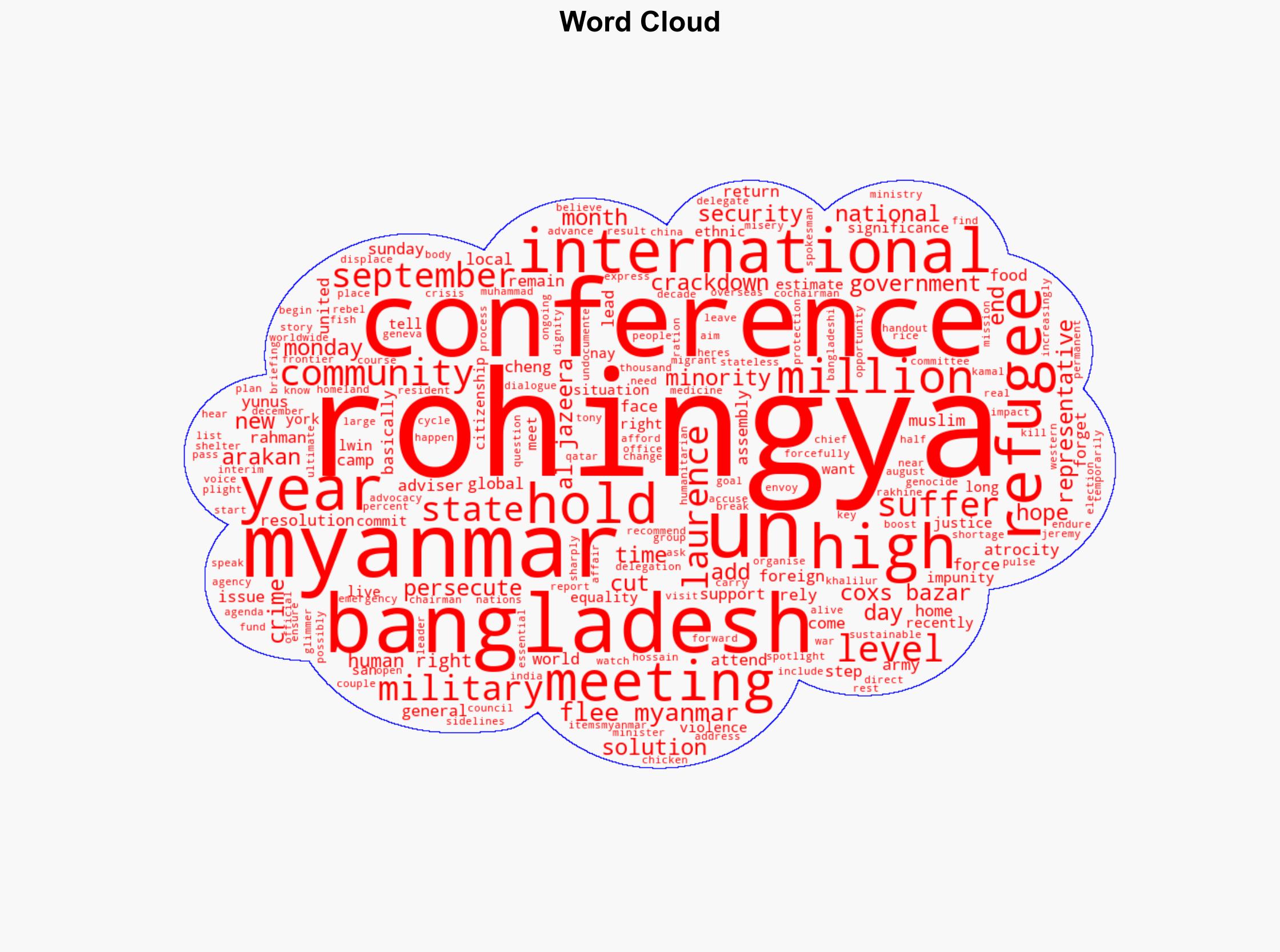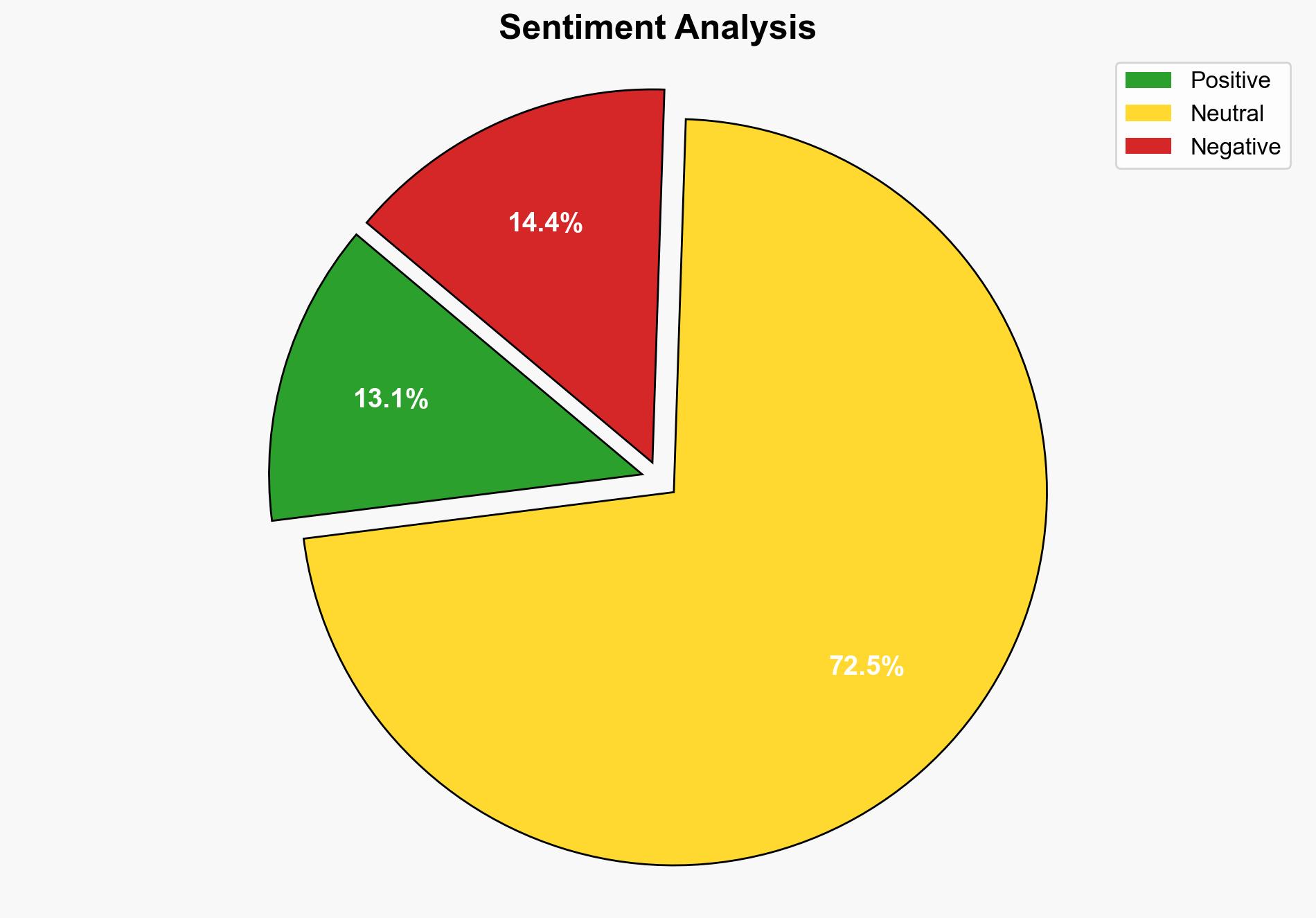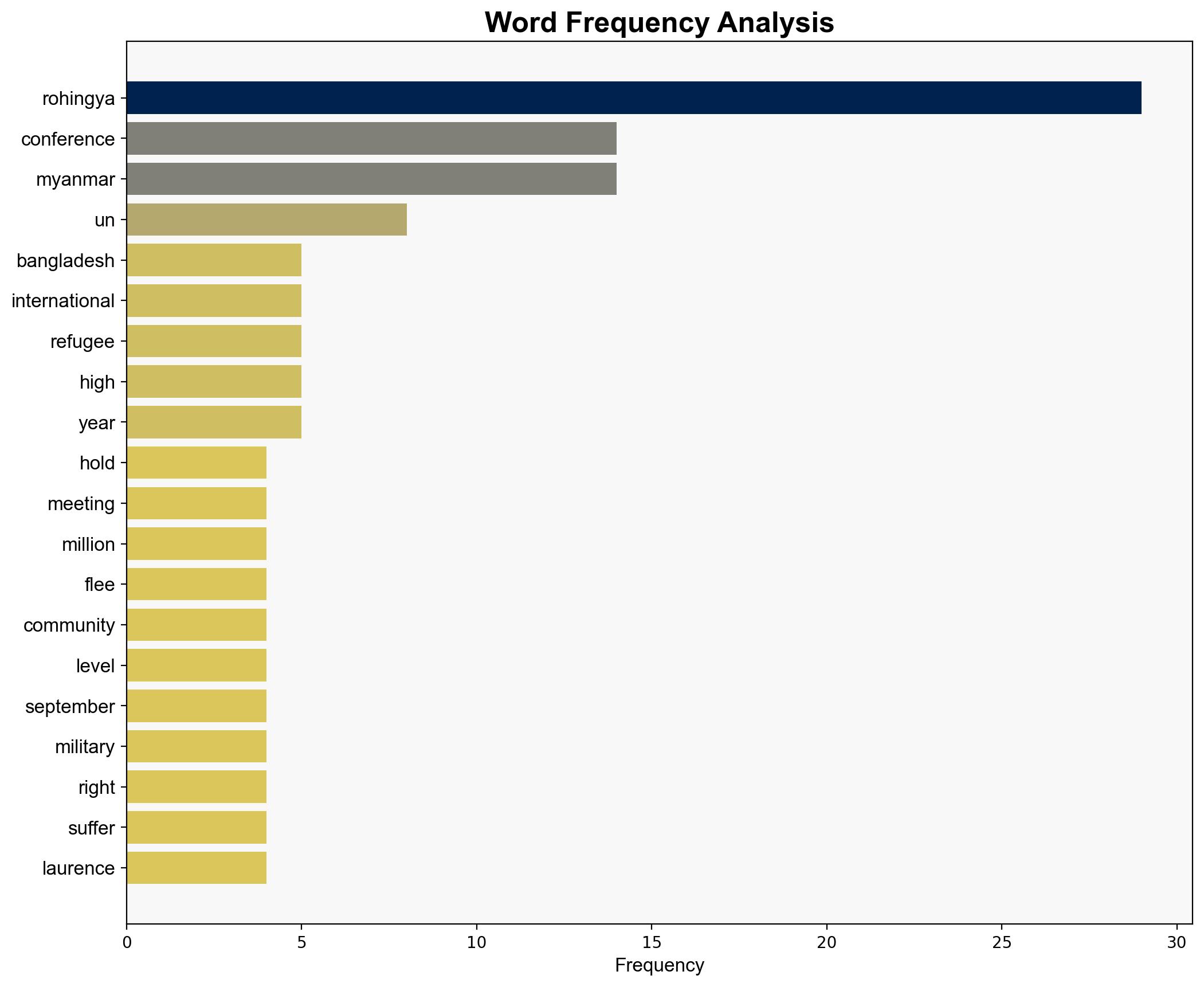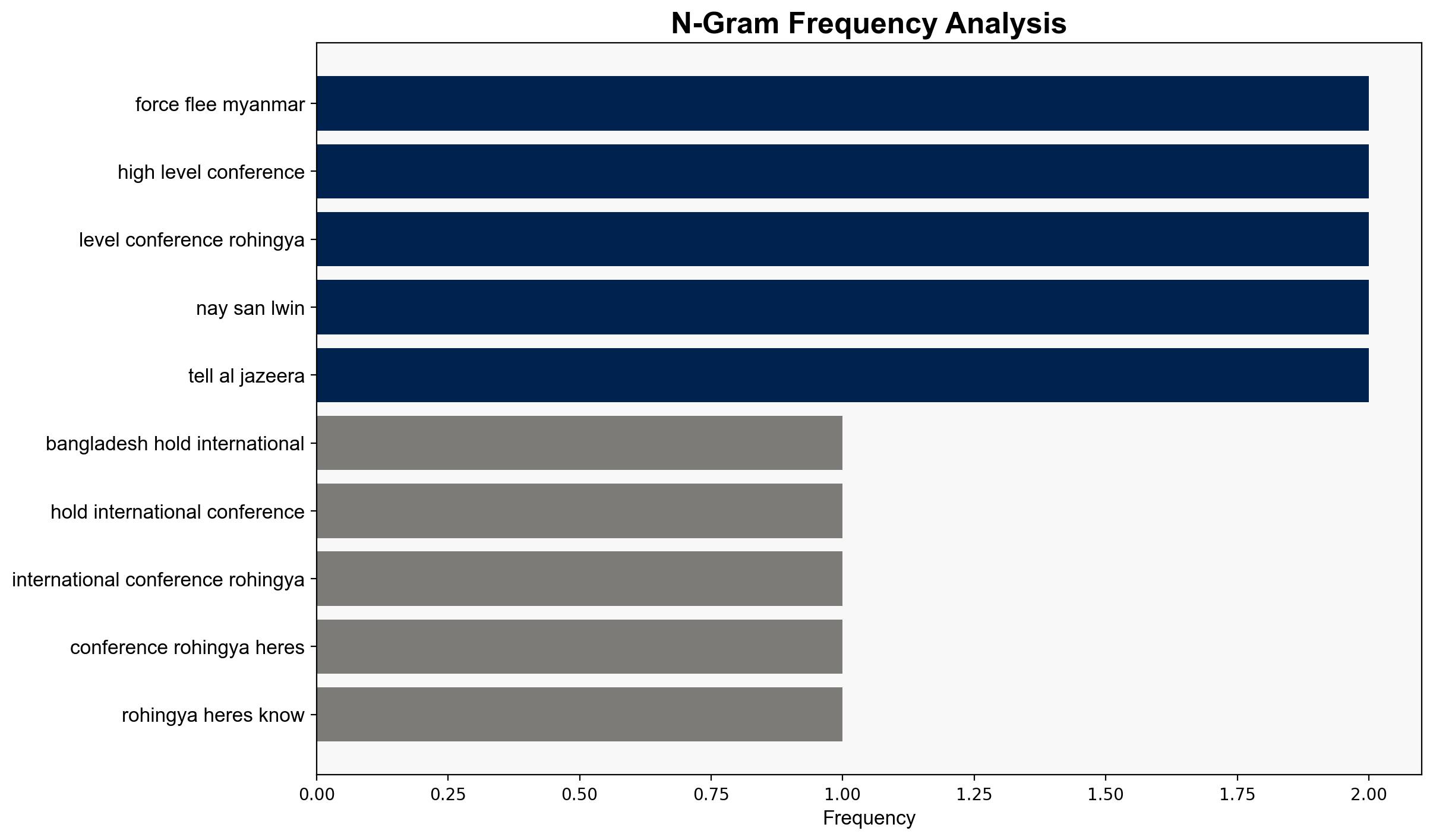Bangladesh holds international conference on Rohingya Heres what to know – Al Jazeera English
Published on: 2025-08-24
Intelligence Report: Bangladesh holds international conference on Rohingya Heres what to know – Al Jazeera English
1. BLUF (Bottom Line Up Front)
The international conference on the Rohingya crisis in Bangladesh highlights ongoing humanitarian challenges and geopolitical tensions. The most supported hypothesis suggests that the conference aims to maintain international pressure on Myanmar for a sustainable resolution. Confidence level: Moderate. Recommended action: Strengthen diplomatic efforts and international collaboration to ensure accountability and support for the Rohingya community.
2. Competing Hypotheses
1. **Hypothesis A**: The conference is primarily a diplomatic effort by Bangladesh to keep the Rohingya issue on the global agenda and pressure Myanmar into accepting the return of refugees with guaranteed rights and safety.
2. **Hypothesis B**: The conference is a symbolic gesture with limited practical outcomes, primarily aimed at securing continued international aid and support for the refugee camps in Bangladesh.
Using the Analysis of Competing Hypotheses (ACH) method, Hypothesis A is better supported due to the involvement of high-level international delegates and the focus on sustainable solutions, indicating a strategic diplomatic initiative rather than mere symbolism.
3. Key Assumptions and Red Flags
– **Assumptions**: It is assumed that international pressure can influence Myanmar’s policies and that Bangladesh’s diplomatic efforts will translate into tangible outcomes for the Rohingya.
– **Red Flags**: The lack of direct engagement from Myanmar in the conference and the potential for donor fatigue are significant concerns. Additionally, the absence of concrete commitments from key regional players like China and India could undermine the conference’s objectives.
4. Implications and Strategic Risks
The conference’s outcomes could influence regional stability and international relations. Failure to achieve progress may lead to prolonged humanitarian crises and increased regional tensions. Economic implications include the strain on Bangladesh’s resources and potential impacts on international aid flows. Geopolitically, the situation could exacerbate tensions between Myanmar and its neighbors, potentially drawing in larger powers.
5. Recommendations and Outlook
- Enhance diplomatic engagement with Myanmar and regional stakeholders to facilitate dialogue and cooperation.
- Increase international aid and support mechanisms to alleviate immediate humanitarian needs in refugee camps.
- Scenario-based projections:
- Best: Myanmar agrees to a phased repatriation plan with international oversight.
- Worst: Continued stalemate leads to further deterioration of conditions in refugee camps.
- Most Likely: Incremental progress with ongoing international advocacy and support.
6. Key Individuals and Entities
– Khalilur Rahman
– Muhammad Yunus
– Nay San Lwin
– Jeremy Laurence
7. Thematic Tags
national security threats, humanitarian crisis, regional diplomacy, international relations





